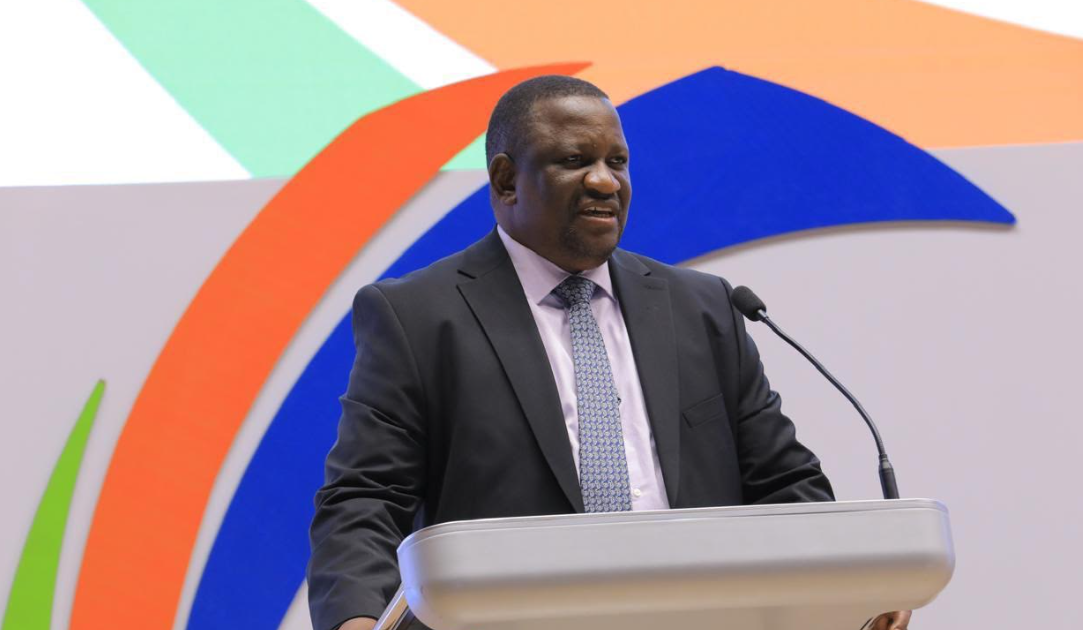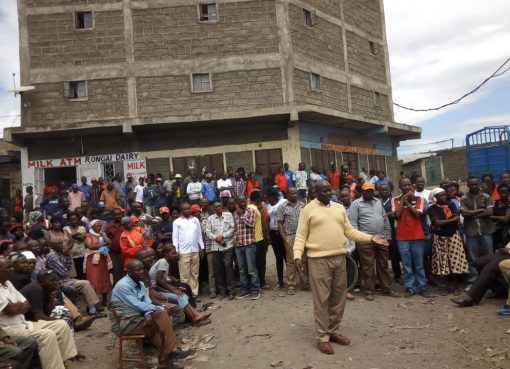Cabinet Secretary (CS) for Investments, Trade, and Industry Salim Mvurya says the government is committed to ensuring that the country’s food systems are more sustainable, inclusive, and resilient in the face of climate change.
CS Mvurya says the National Government will work with all the stakeholders to boost food security and nutrition in the country by supporting local communities’ economic empowerment initiatives.
Mvurya was speaking on Thursday at the World Without Hunger 2024 Conference in Addis Ababa, Ethiopia, where he led a high-level Kenyan delegation during the three-day forum organised by the United Nations Industrial Development Organisation (UNIDO), the African Union Commission (AUC), and the Food and Agriculture Organisation (FAO).

The conference brought together global leaders to explore innovative strategies for eradicating hunger and improving food security.
In his address, Mvurya highlighted the importance of integrating agriculture with industrialisation as a key solution to food and nutrition security challenges.
He further emphasized on the need for sustainable agro-industrialisation strategies, which can drive economic development, strengthen global food systems, increase productivity, reduce post-harvest losses, improve trade balances through exports, generate employment, and elevate livelihoods.
The minister also underscored the pivotal role that Micro, Small, and Medium Enterprises (MSMEs) play in job creation and income generation and called for coordinated efforts to support MSME investments in agro-industries.
“Promotion of women and youth entrepreneurship in rural agro-businesses is crucial for ensuring global food security and fostering sustainable development,’ he said.
Additionally, developing the necessary skills and technical expertise is essential for advancing food system transformation and industrialisation.
Mvurya, who was among over 1,500 high-level stakeholders, including Heads of State and Government, Ministers, UN agencies, the private sector, financial institutions, and the donor community, stated that the government will also help promote the adoption of smart agricultural practices and encourage healthy lifestyles while minimising the environmental impact of climate change.
He reaffirmed the government’s commitment to building resilient food systems and implementing climate-resilient policies and regulations aimed at attracting investment in food systems across the country.
This includes leveraging Export and Economic Zones, with a particular emphasis on agro-industries, in alignment with the Government’s Economic Blueprint.
The conference was officially launched on Tuesday by the Ethiopian Prime Minister Abiy Ahmed, who noted that the vision for Zero Hunger extends beyond merely addressing hunger and malnutrition.
The PM called for the creation of sustainable and equitable food systems where everyone has access to sufficient food in a bid to enable populations to live dignified lives.
By Mohamed Hassan





